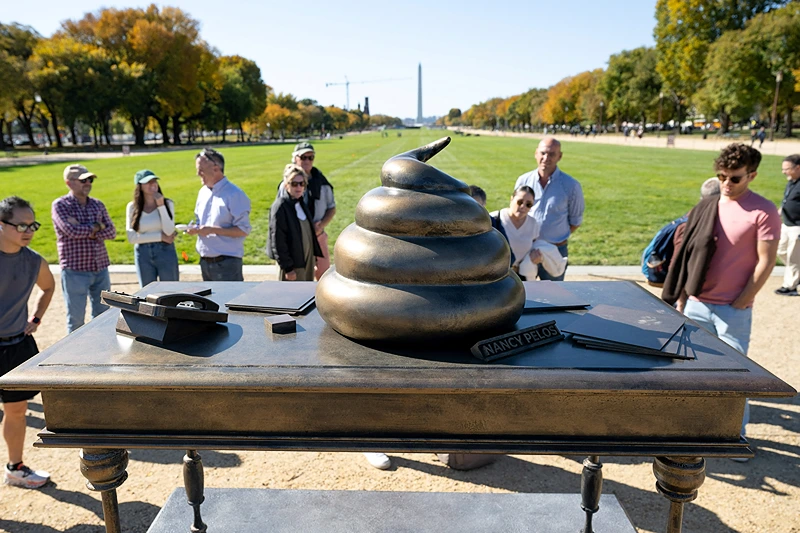'The Twilight Zone' host and creator was plagued with PTSD after WWII but was 'not a broken man': authors
Anne Serling, the daughter of "Twilight Zone" creator and narrator Rod Serling, wrote a memoir about her famous father, "As I Knew Him: My Dad, Rod Serling."

Rod Serling spent three years as a paratrooper during World War II – an experience that haunted him the rest of his life.
The Emmy Award-winning creator and host of "The Twilight Zone" passed away in 1975 at age 50 from a heart attack.
Ahead of what would have been his 100th birthday – Dec. 25 – Serling’s daughter, Anne Serling, and TV writer Marc Scott Zicree are looking back at his life and legacy.
‘BEWITCHED’ STAR WAS ‘FINANCIALLY DESTITUTE,’ FORCED TO CLEAN TOILETS AFTER ON-SET INJURY: AUTHOR
Anne, author of the memoir "As I Knew Him: My Dad, Rod Serling," told Fox News Digital that the star was plagued with PTSD after serving his country.
"My father enlisted in the War the day after he graduated from high school," she shared. "He really wanted to go and fight the Nazis, but… he was sent to the Philippines. He was in Laos… where some of the fiercest fighting was… He saw a friend of his decapitated when a food crate fell from the sky – just horrific things."
"I know my dad had nightmares," said Anne. "I would hear him sometimes. And in the morning, I would ask him what happened, and he said he dreamed that the enemy was coming at him."
"When I was writing my book, I read the letters that he wrote to… his parents before he was sent over when he was in training camp," Anne recalled. "And they broke my heart because he was asking for things like candy, gum and a belt buckle or something, and underwear because he didn’t like the GI underwear. It punctuated how young these guys were."
Anne said he coped with his PTSD symptoms "as best as he could."
"It was called ‘shell shock’ back then," she said. "It wasn’t even a term, PTSD… But I’ll tell you, he wore his paratrooper bracelet throughout his life. It was extremely meaningful to him."
CLICK HERE TO SIGN UP FOR THE ENTERTAINMENT NEWSLETTER
Anne’s sister, Jodi Serling, later wrote that the war "opened up dark horizons of terror" for her father. She said it left the patriarch with "gut-wrenching memories" that influenced his writing and awakened him at night, "sweating and screaming inconsolably."
Zicree, a screenwriter who wrote "The Twilight Zone Companion," emphasized to Fox News Digital that Serling was not a "dark, depressed, broken man."
"When he turned 40, he returned to his battalion to take another paratrooper jump out of an airplane just to show he could still do it," Zicree chuckled. "He always had a great affection for his fellow veterans… [And] he was full of life, full of fun. He was present, loving – he loved his family. He had very close friends. He was a really great guy."
According to The National WWII Museum, one out of every three men in Serling’s regiment survived. He was awarded a Bronze Star and a Purple Heart.
"As a writer, he was able to get it off his chest through writing," said Zicree. "There’s a terrific episode of ‘The Twilight Zone’ called ‘The Purple Testament,’ which is about a soldier in World War II… fighting in the Philippines, who can see the faces of those who are about to die in combat."
"There’s a strange light that affects them that he can see, and the feeling of soul weariness of those soldiers – it feels so real and authentic," he shared. "You can tell that the man who wrote that episode lived that experience. It’s one of the best things ever written about war."
LIKE WHAT YOU’RE READING? CLICK HERE FOR MORE ENTERTAINMENT NEWS
Anne described Serling as a doting father who wasn’t fazed by fame – family always came first.
"My dad was so different from how the public would imagine," she said. "They see this dark image walking across the sound stage, but my father was hilarious. He loved ‘The Flintstones.’
"He had a great singing voice. He would belt out Sinatra and Tony Bennett. He did the best gorilla imitation you could imagine, as is evidenced in almost every single home movie. He told an audience [member] once, ‘You think you know me, but actually, I don’t even like to go into the attic unless the light is on.’"
WATCH: ROD SERLING OF ‘THE TWILIGHT ZONE’ HAD PTSD, WAS ‘NOT A BROKEN MAN’
"There are so many memories I have of my father that make me smile," Anne continued. "One time he came down wearing my lampshade, and it was just a funny thing. Another is, when he would get angry, he walked out of the room and, about five minutes later, walked back in and say, ‘Have you seen my twin brother anywhere?’
"The other great memory I have is taking trips with my dad to New York City. Every time we got into an elevator, he would tell me – this is when I was a little older – an off-color limerick. I would start to laugh the minute we got on the elevator, and then he would start to laugh. There we were like two fools giggling away."
The screenwriter and producer quickly became one of TV’s most prolific and best-known writers, The New York Times reported. Zicree said Serling had a "mixed response" to his Hollywood success.
"I think certainly he was proud of ‘The Twilight Zone,’" he explained. "He felt ‘The Twilight Zone’ accomplished what he had set out to do, which was to take everything he cared about, everything he felt about life, humanity, love and death – all the big true issues, and put it into his show.
"But I think Hollywood… can be incredibly corrosive. It can break your heart. It can break your spirit. Rod was not a broken man at all. But certainly after ‘The Twilight Zone,’ when he did ‘Night Gallery’ and other major projects, he certainly felt how needlessly cruel Hollywood could be, how it didn’t recognize quality the way that we all do."
"I wish Rod Serling never had a day when an executive rejected him ever because he was our genius," Zicree reflected. "But I think toward the end of his life, he didn’t think ‘The Twilight Zone’ would withstand the test of time. He said as much in interviews."
"When I was writing [my book], I interviewed over 100 people who worked on the show," Zicree shared. "No one had a bad word about Rod – nobody… in a town that’s known for its cattiness, its gossipy qualities and its catfights, everyone loved Rod."
Anne said Serling was full of hope during his final years. He was excited about writing a novel and a Broadway play. He also "wanted to meet his grandchildren someday."
"He was feeling very positive about his future," she said. "My parents had talked about maybe staying back east longer because they both loved the change of seasons."
"He was hardly a broken man, just cowering in the shadows," Zicree chimed. "I think we’re blessed that he worked in a medium where we can see his work… And the quality of ‘The Twilight Zone’ is what has made it last now and a hundred years from now. When we’re heads in nutrient tanks with robot bodies, we’ll probably be here again saying how great Rod was."
What's Your Reaction?















